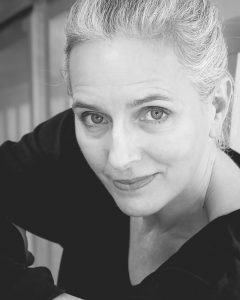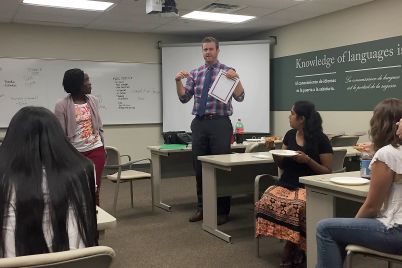
by Tim Cousino
Contributor
Q: How long have you been teaching at WCC?
A: I started in the Morris Lawrence building when it wasn’t even called that. Morris Lawrence was still here, and he and I were the performing arts department. I became chairman outside of a few odd years for about 18 years give or take. That really shaped a lot of the work that I did here, and forms my institutional knowledge. I’ve seen the college grow and change. I also on a personal note grew and changed in this position, teaching theatre. It became my life’s work.
Q: What are the courses you do teach?
A: I started with an acting I, when I first came on and there was a part-time instructor who did a fine job, but we were just a little seed of an area. Then I created acting 1 acting 2 acting 3 acting 4 and those are project driven. I had a theatre production class for a while where students learned tech. I created a thriving improv class which is a blast to teach. I developed that maybe 5, 6 years ago and now its offered every semester. I also in the last 5 years created a theatre appreciation class. That’s a bread and butter, transfer, it’s a beautiful class. We go to plays together on Thursday nights. We go to UM, University Musical Society. We go to the“Purple Rose” in Chelsea, the “Yellow Barn,” “Theatre Nova” in Ann Arbor. It’s just a great way for people to expand their exposure and understanding of theatre.
Q: Have there been times where you’ve had to throw something out because what it looked like on paper didn’t actually work as well on stage?
A: I’m always viewing them through a lens of would this really grasp the interest of our students? Is this relatable? Is this something that would be successful in the classroom? Because I want people to love theatre. There are so many different kinds of scripts. I view myself as a starter. I think my job here is to meet students exactly where they are, and students can be all different places in terms of their experience of theatre. I try to stay really current with plays because there’s some fantastic playwrights that are just bursting on the scene. Themes that need to be talked about. And I want students to realize theatre is not something for older people, it’s for us. And They could be theatre artists and playwrights. Your life experience matters. And your story and narrative and your voice matters. And it can be expressed through theater.
Q: What are you reading right now? Aside from the plays.
A: I read the “New York Times” every single morning and night. I think the “Washington Post.” I like the “Atlantic,” “The New Yorker.” They’re amazing. I’m really concerned and sensitive about invisible privilege. I’ve been reading a book called “Waking up White” by Debbie Irving. It’s about a woman who does this thorough, honest journaling of and with research of being born with white family, with means, and everything just available to her and not questioning that. She’s just dissecting and dismantling all this white privilege. I take that very seriously. I don’t read many novels, I read plays. When I have the time to read I’m reading plays. I could read all kinds of plays and be like “Oh, this one’s packed full of scenes that I can use.”
Q: If you could live in any time period when would that be?
A: If I could go in a time machine, I would go back, and I would watch “Oedipus the King” in 500 BCE by Sophocles. That would blow my mind. Then I would catapult right to Henrik Ibsen’s “A Doll’s House” in the 1860s. It’s as strong as a feminist statement as you would find today. Then I would jump, and I would want to see Arthur Miller’s “Death of a Salesman” on Broadway when it opened. Then I would want to see “Fences” even though it was more modern, only three years ago, with Denzel Washington. And onstage because they were on Broadway for a long time, Denzel and Viola Davis. They were on Broadway before they did the film. Then I would reimagine history, and I would be at the Academy Awards when Denzel wins best actor. But he didn’t win it. That’s my point. That’s my make-believe time machine.


